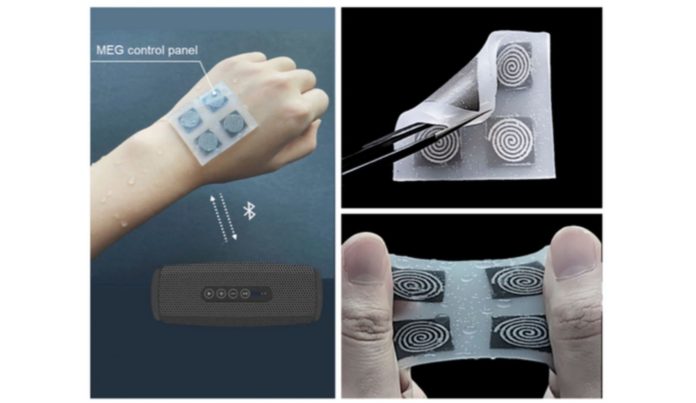A new study presented today solves one of the most important challenges faced by conventional human-machine interfaces (HMIs): sweaty skin.
HMIs, or wearable human-machine interfaces, can be used to operate various systems, including machines, computers, music players, and others. Conventional Human-Machine Interfaces (HMIs) face a problem with sweaty skin.
Scientists at UCLA have developed a sort of HMI that is stretchy, cheap, and waterproof, as described in Applied Physics Reviews by AIP Publishing. The system is built around a soft magnetoelastic sensor array that transforms mechanical pressure from a finger push into an electrical signal.
There are two primary parts to the device. A layer that converts mechanical movement into a magnetic reaction makes up the first part. It comprises of a number of micromagnets in a porous silicone matrix that may change the magnetic field in response to light fingertip pressure.
A magnetic induction layer made up of designed liquid metal coils is the second element. Through the process of electromagnetic induction, these coils respond to variations in the magnetic field and produce energy.
The magnetoelastic sensor array can produce stable power under deformations, such as rolling, folding, and stretching, because to the material’s flexibility and toughness, according to author Jun Chen from UCLA.
“Due to these compelling features, the device can be adopted for human-body powered HMI by transforming human biomechanical activities into electrical signals.”
The wearer’s movements provide the necessary energy for the HMI to function. This eliminates the need for batteries or other external power sources, making the HMI more sustainable and environmentally friendly.
The device was put through a number of real-world tests, including ones where there was water spray, like in a shower, a downpour, or during strenuous exercise. Since the magnetic field was not significantly changed by the presence of water, the device functioned well even when wet.
To maximize the device’s conversion of biomechanical to electrical energy, the researchers looked at a range of fabrication and assembly methods. They discovered that by adjusting the thickness of the flexible film and the concentration of the magnetic particles, they could strike a balance between performance and flexibility.
The researchers conducted a series of experiments in which a participant used finger taps to operate a music player and turn a lamp on and off in order to evaluate their system.
In addition to remotely acting as a lamp’s on and off switches, Chen’s magnetoelastic sensor array also manages a music player’s command features, which correspond to the actions of play, pause, next, and previous.
These tests indicate new uses for adaptable water-resistant HMIs, which can operate a range of smart devices.
Image Credit: Getty
You were reading: This New Device Works Well When Wet: A Challenge For Current Smart Devices
